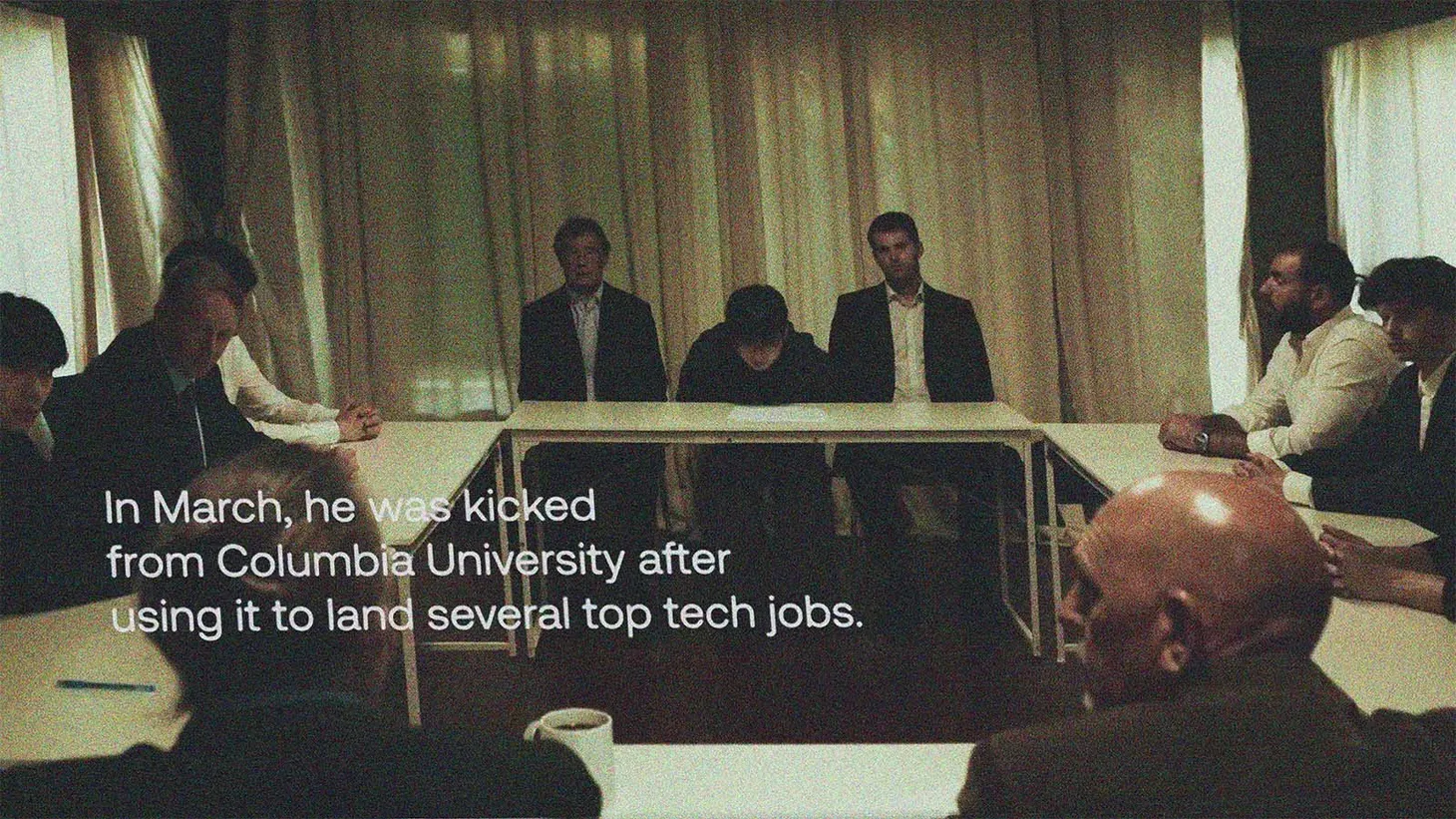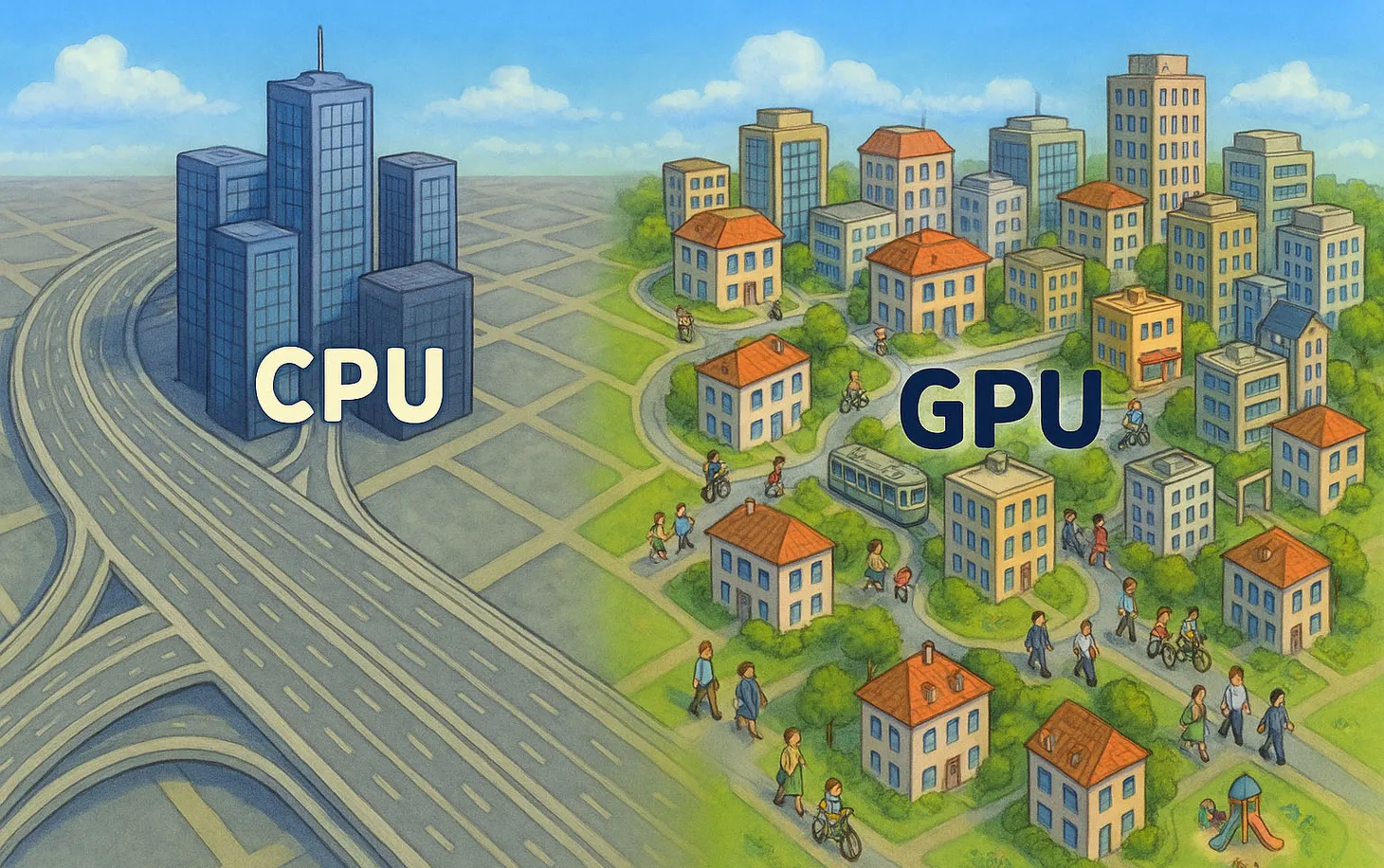Don’t Try Anything New.
You don't have to worry about AI. Keep doing what you're doing.

❤️ This is a special Sunday edition. Friday was a Jewish holiday, and tomorrow is Memorial Day, but I didn't want to leave you content-less for too long.
🎧 Last week, I joined Josh Brown and Michael Batnick on The Compound to chat about AI, the future of work, cities, and how we overestimate our ability to predict the future and slow the adoption of new technologies. The video is available below and on YouTube. The podcast version includes a casual chat we had before the official recording, covering some personal stuff as well as WeWork and Israeli chutzpah.
🚀 On Tuesday, I will kick off the first cohort of Hype-Free AI. Join me to learn how to use the most powerful software ever developed. We'll also explore where the recent wave of AI innovations came from, where it's headed, and what it means for your business and career. I'm teaching the course live and will take you step-by-step to ensure you gain practical skills and put AI to work. Learn more and sign up here.
The audio version of this article is available below and here.
A few things happened this week. And they all fit together somehow. Yesterday, the Boston Celtics completed one of the most challenging feats in professional sport: They were down 3-0 in the NBA's Eastern Conference Finals and clawed their way back to 3:3. Hopefully, they can win tomorrow's final game 7. What does this have to do with you?
Last year, I wrote about why the Celtics decided to draft Jayson Tatum:
Prior to the NBA draft, Tatum reluctantly showed up to work out with the Boston Celtics. He showcased some of his skills but didn't necessarily shoot the lights out. But during this short visit, he managed to showcase something else as well. As Coach Brad Stevens described it, "He would miss two in a row, and it wouldn't dissuade him from hitting the next one. He had no thought about making the next five; he didn't get – he just kind of kept shooting it." Stevens wasn't just watching the basket; he was watching Tatum's reaction to his own failure and success: "He never changed his expression. Never changed his expression, went at a high tempo, but when he missed a shot he never showed anything but resolve to make the next one."
...
I often think about Brad Stevens's comments from the first workout. They seem to capture something about the difference between the potential for greatness and actual greatness. And it applies well beyond basketball. So often in life, we lose confidence, we make a mistake, we doubt ourselves, we say something wrong. The ability to step into the next shot as if you're about to hit it is an incredible power. It's true for sales calls, for product launches, and it's even true for a conversation with a colleague or with a spouse.
Tatum's rare composure was on full display in this year's playoffs. At a crucial game, Tatum put up the worst performance of his life. And yet, he kept playing like nothing happened. And then, in the game's final minutes, something happened. Tatum scored 16 points during the last quarter of the game and led his team to victory.
OK OK. But what does this have to do with you?
Patience. It's Sunday. We're not in a rush.
In February, Behavioral Scientist wrote about a new study exploring commercial success's impact on creativity. The study tracked the output of different artists before and after they won — or were nominated for — a Grammy award. The award was used as a proxy and catalyst of success:
The highest-profile awards of the music world, the Grammys, recognize major achievements, carry lots of positive publicity, and often fuel commercial success. Winning an award can be the big break that catapults an artist into stardom. National Public Radio calls the Grammys “sales juicers” and notes that “a Grammy Award could vault an album up the charts. Or make a career.”
In particular, the researchers wanted to see how achieving success impacts an artist's willingness to take risks. They used machine learning to analyze different songs and compare them to the mainstream. What they discovered might seem surprising:
We found that after winning a Grammy, artists tend to release music that deviates stylistically from their own previous work, as well as from other artists in their genre. Nominees who lose do the opposite—their subsequent albums trend toward the mainstream.
So, those who won it all, leveraged their success to do something different and lean harder into their own unique style. Those who didn't win, lost confidence and pivoted to the center.
We think this happens because winning a Grammy grants an artist more leverage to pursue their personal artistic inclinations. Nonwinners, however, might interpret their loss as a negative signal about how their artistic choices deviated from the norm, and thus feel more bound to conventions of their genre.
One can assume that winners have more resources at their disposal and can thus push boundaries more easily. But the researchers find that the differences in the resources disparity between Grammy winners and Grammy nominees are not significant. The winners use their resources differently. In particular, they use their success to force record labels to expand their horizons:
For winners, the award impact seems to translate to leverage for musicians in their relationships with commercial partners. Musicians have long voiced complaints about their recording companies, saying companies’ control limits artistic freedom, pushing them to make less creative but more commercially viable music. In his protracted battle with Sony, George Michael said that the company regarded him as a “piece of software.” Prince changed his name to a symbol to protest the contractual stranglehold from Warner Brothers that limited the release of his prolific output. Winning a Grammy leaves an artist better situated to negotiate for more innovative future work that lets them push the bounds of their creativity and honor their personal style.
The ability to transcend institutional constraints seems to be crucial. Winning a Grammy does not just give artists more money and resources (nominees get these as well, as the nomination itself provides a significant boost). But winning does give artists the confidence to push back against industry bosses who try to contain them. Some artists even constrain themselves — especially if they've been successful for a while:
We also find that the extent to which a winning artist branches into new territory is related to their prior commercial success and the size of their recording company. The greater their past success, the less differentiation winning artists displayed. Similar for artists with large record labels: award winners with major record labels showed less differentiation than those with smaller ones. This suggests that the increase in artistic freedom may be tempered by individual or organizational constraints.
Established artists who are already very successful are less likely to become more adventurous even after they (finally) win a Grammy. And those who are under contract with a larger (and more powerful) label are less likely to push back against the pressure to keep doing what already works.
Success and a strong backer can be a curse in a changing world. They make it harder for us to grow and respond to changing demand. They also make it harder for us to develop new ideas and create our own demand. Over at the London Times, Martin Sorrell exemplifies how this work in practice. The founder and ousted leader of the world's largest advertising firm thinks everyone should return to the office. Not just to work but to save "prevent... the decline and fall" of Western Civilization. The big boss atop one of the most creative industries struggles to embrace (or at least accept)how many creative people prefer to work.
But his thoughts are far less relevant than they once were. No boss can constrain the world's creative people (and all people are creative). Technology means not having to ask for permission. The internet allows you to build an audience and client base directly. Software and AI will enable you to create whatever you like without owning a whole studio or spending millions of dollars.
As individuals, we must become more adventurous. Trying to force things back to "normal" is not a viable strategy. I don't know if times were ever normal — but our time definitely isn't. When it comes to our careers, we can't pivot to the mainstream because the path of that stream keeps shifting. What once worked suddenly stops working. What was supposed to stop working, suddenly works better.
Consider the case of radiologists — people who analyze X-ray, CT and other forms of medical imaging. Software and cheap remote labor were supposed to replace them. But while bandwidth increases and software improves, American radiologists are in very high demand, and their average salary gets higher. And yet, more radiologists are working from anywhere.
Is this good news or bad news for radiologists?
Jeff Bezos comes to mind. As he famously said, "Your margin is my opportunity." High costs and insatiable demand are the siren song that seduces tech giants to dive in (or is it the blood that draws tech sharks to take a bite?). Whatever the metaphor, historical success in fending off automation and remote competition is no indication of future performance.
Remote work is already taking a toll. As Radiology Business reports:
"Radiologists looking for remote work will be increasingly likely to find it. More than one-quarter (28%) of 200 consecutive diagnostic radiologist job postings we reviewed on the ACR job board were advertised as 'remote,'"
As for AI, we know that some of what's possible today was not even imaginable a year ago. We can expect these capabilities to trickle into various industries sooner rather than later.
What will actually happen? It's not clear. But the least we can do is learn more about the latest tools, their capabilities, and their potential implications. We need to get hands-on. It's not just crucial; it's fun. Whether you're already successful or not, you can't keep doing the same old things (and if you can — let me know how; I'll join you!).
Earlier this week, everyone was making fun of this poor lawyer. He used ChatGPT in a court case against an airline and failed miserably. As The New York Times reported:
When Avianca asked a Manhattan federal judge to toss out the case, Mr. Mata’s lawyers vehemently objected, submitting a 10-page brief that cited more than half a dozen relevant court decisions...
There was just one hitch: No one — not the airline’s lawyers, not even the judge himself — could find the decisions or the quotations cited and summarized in the brief.
That was because ChatGPT had invented everything.
The lawyer... threw himself on the mercy of the court on Thursday, saying in an affidavit that he had used the artificial intelligence program to do his legal research — “a source that has revealed itself to be unreliable.”
Don't be that guy. Join my upcoming course to learn the right way to use these tools. Still, I admire him. He didn't ask for permission. He didn't wait to win the lawyer version of a Grammy in order to explore new ground. He just went for it. Just like Jayson Tatum. So what if he missed? So what if we missed? As a species, we have to keep taking these shots. It's our only chance of winning.
Have a beautiful week.
Best,


Dror Poleg Newsletter
Join the newsletter to receive the latest updates in your inbox.




